Physics
Sign up for our newsletter
We summarize the week's scientific breakthroughs every Thursday.
-
 Physics
PhysicsThe long road to detecting gravity waves
Thanks to two colliding black holes, Einstein's historic prediction of gravitational waves disturbing the fabric of spacetime has finally been realized.
-
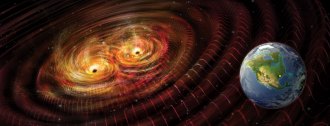 Physics
PhysicsGravitational waves explained
Colliding black holes send ripples through spacetime that can be detected here on Earth. What are these gravitational waves, and how did Advanced LIGO detect them?
-
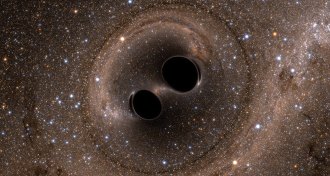 Physics
PhysicsGravity waves from black holes verify Einstein’s prediction
Gravitational waves, tremors in the cosmic fabric of space and time predicted by Einstein a century ago, have finally been detected, opening a new avenue for exploring the universe.
By Andrew Grant -
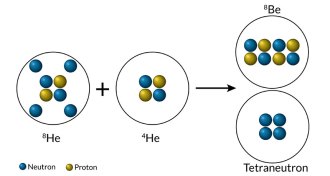 Particle Physics
Particle PhysicsPhysicists find signs of four-neutron nucleus
Strong evidence of a tetraneutron, an atomic nucleus with four neutrons but no protons, defies physicists’ theoretical expectations.
By Andrew Grant -
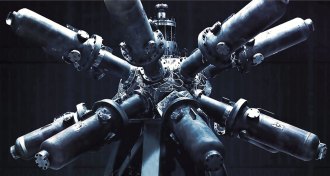 Physics
PhysicsNuclear fusion gets boost from private-sector startups
Private-sector firms are creating nuclear fusion machines that may beat governments to the punch.
By Alan Boyle -
 Particle Physics
Particle PhysicsEntanglement is spooky, but not action at a distance
Recent experiments on quantum entanglement confirm that it’s spooky, but it was not, as Einstein implied, action at a distance.
-
 Particle Physics
Particle PhysicsQuantum spookiness survives its toughest tests
Recent experiments on quantum entanglement confirm that it’s spooky, but it was not, as Einstein implied, action at a distance.
-
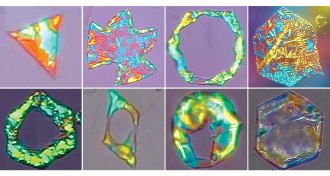 Chemistry
ChemistryFrozen oil droplets morph and shine
Scientists can turn oil droplets into an array of crystalline shapes by manipulating the chemistry and temperature of the droplets’ surroundings.
-
 Quantum Physics
Quantum PhysicsQuantum histories get all tangled up
Multiple versions of history may be quantum entangled just like particles, a new experiment suggests.
By Andrew Grant -
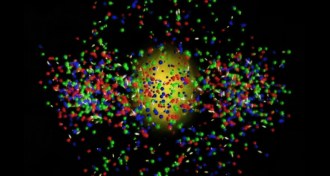 Physics
PhysicsEarly quark estimates not entirely realized
Decades of research have shed a little light on quarks, the mysterious building blocks of atoms.
-
 Physics
PhysicsPhysics’ metamorphosis explored in slim new book
From ancient Greek philosophy to quantum mechanics, a new book charts the evolution of physics.
-
 Physics
PhysicsMore details on Stephen Hawking’s solution to black hole problem
Stephen Hawking and colleagues have finally provided more information about how black holes might preserve information.
By Andrew Grant